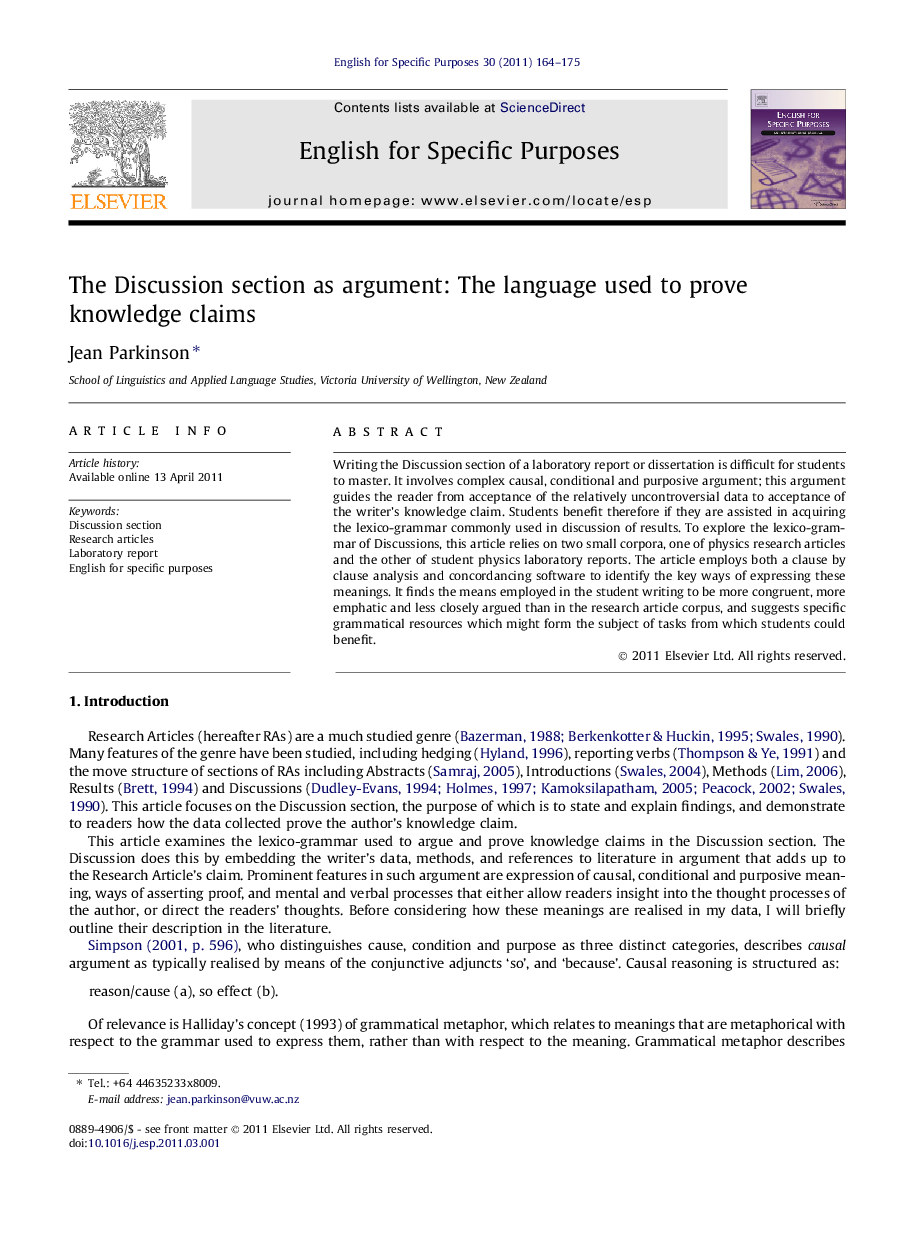| Article ID | Journal | Published Year | Pages | File Type |
|---|---|---|---|---|
| 355499 | English for Specific Purposes | 2011 | 12 Pages |
Writing the Discussion section of a laboratory report or dissertation is difficult for students to master. It involves complex causal, conditional and purposive argument; this argument guides the reader from acceptance of the relatively uncontroversial data to acceptance of the writer’s knowledge claim. Students benefit therefore if they are assisted in acquiring the lexico-grammar commonly used in discussion of results. To explore the lexico-grammar of Discussions, this article relies on two small corpora, one of physics research articles and the other of student physics laboratory reports. The article employs both a clause by clause analysis and concordancing software to identify the key ways of expressing these meanings. It finds the means employed in the student writing to be more congruent, more emphatic and less closely argued than in the research article corpus, and suggests specific grammatical resources which might form the subject of tasks from which students could benefit.
► Discussion sections in student laboratory reports and research articles are compared. ► Expression of causal, conditional, purposive meaning is considered. ► The laboratory reports rely on a smaller range of resources to express these. ► They use, in particular, conjunctions rather than nominal groups, verbs, or adverbial groups. ► Research articles are more persuasive and less emphatic than student lab reports.
